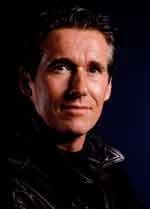

Successful voice-technique education
Alberto ter Doest
All voice-teachers in the world are working with different technique’s ,methods or therapy’s to help people to improve their voices. And all these voice teachers are absolutely integer to do this in the interest and success of their pupil. Sadly enough we are still encountering singers, voice teachers, actors or speakers with poor voices, breathy sound, limited height, hoarseness etc.
When we assume that the pupil is healthy and talented then what do we need as voice educators to develop these pupils successful?
When we want to be good teachers we surely need to know the territory of the voice. But how good do we know the spectrum of voice-possibilities in music styles compared to the knowledge of voice-technique at the moment? We can read, listen and learn from professionals, many books with and without CD’s are sold as bibles of voice education. But will all this reading make us good teachers in voice education? What do we need, more books or courses? Let’s try to find what methods are promising us? We will look at Belcanto technique, Speech level singing, Ultimate voice training, Feuchtinger method , Lichtenberger, CVT and EVTS. All these methods and systems promise us better healthier singing and surely their intent is to improve and help voice users and teachers. Nevertheless how come that we can read and learn so much and still so many voices don’t improve or sometimes even get worse after voice lessons?
There is no method that guarantees us that we all become absolute good voice teachers.
To my opinion the key to success lies in: analyzing. And where do methods learn us to analyze the sound? How can I know that the sound that I hear is what the method tells me to hear? I hope to solve this question about “what” do we need to hear and if the above mentioned methods help us analyze what we need to hear? Do they teach us how to judge, analyze voices or sounds, based on what parameters? Are they able to let us hear at least what is really wrong and bad?
Besides looking at these methods I will try to show what voice science nowadays believes is wrong for the health of the voice, so that we can hear and understand how to analyze right from wrong. What do we need to know about the voice-sound and how it is produced? The basic of good voice-teaching will be learning to analyze the sound and which parameters are responsible for its quality and in what direction it can or has to be developed. Which parts of the voice system changes the sound in which way and how much is needed for a particular quality? I will show you how breath-support only relates to a very, very small part of the sound and it’s quality.
I hope to show how the above methods relate to what is called good voicing? How do they teach us to hear good from wrong? If these methods can learn us to eliminate bad unhealthy sounds we all should be able to develop good, healthy, stronger phonation with a big range.
Alberto ter Doest
Artistic Coordinator
MusicTheatre Academy
Codarts,Rotterdam
Tel. 010 – 2019784
atmterdoest@codarts.nl
www.muziektheateracademie.nl